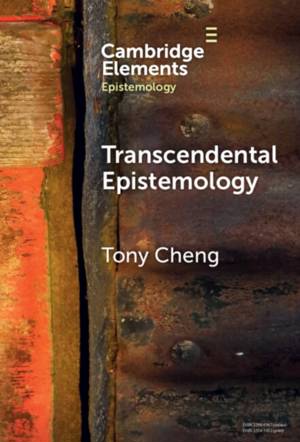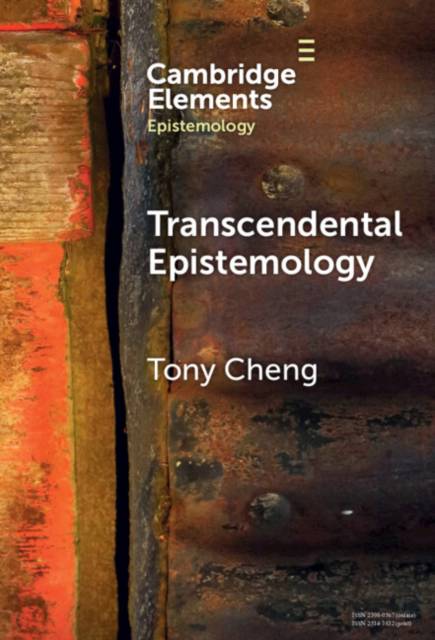
- Afhalen na 1 uur in een winkel met voorraad
- Gratis thuislevering in België vanaf € 30
- Ruim aanbod met 7 miljoen producten
- Afhalen na 1 uur in een winkel met voorraad
- Gratis thuislevering in België vanaf € 30
- Ruim aanbod met 7 miljoen producten
Zoeken
€ 104,95
+ 209 punten
Uitvoering
Omschrijving
Transcendental arguments were prominent in Western philosophy, German idealism, phenomenological tradition, and P. F. Strawson's thinking. They have fallen out of fashion because of their associations with transcendental idealism and verificationism. They are still invoked by important figures in the analytic tradition even if the very same tradition has cast doubt on such arguments. The nature of transcendental arguments remains unclear: Are they supposed to be deductive? Are they synthetic or analytic? If they are a priori, how are they supposed to be about the empirical world? What are their relations to necessity, conceivability, and essence? This Element takes up the challenge of elucidating the nature of transcendental arguments, embedded in the wider context of transcendental epistemology. It will be argued that the key premise 'transcendental conditional' is synthetic, necessary, and a posteriori.
Specificaties
Betrokkenen
- Auteur(s):
- Uitgeverij:
Inhoud
- Aantal bladzijden:
- 80
- Taal:
- Engels
- Reeks:
Eigenschappen
- Productcode (EAN):
- 9781009478632
- Verschijningsdatum:
- 15/02/2024
- Uitvoering:
- Hardcover
- Formaat:
- Genaaid
- Afmetingen:
- 152 mm x 229 mm
- Gewicht:
- 281 g

Alleen bij Standaard Boekhandel
+ 209 punten op je klantenkaart van Standaard Boekhandel
Beoordelingen
We publiceren alleen reviews die voldoen aan de voorwaarden voor reviews. Bekijk onze voorwaarden voor reviews.











